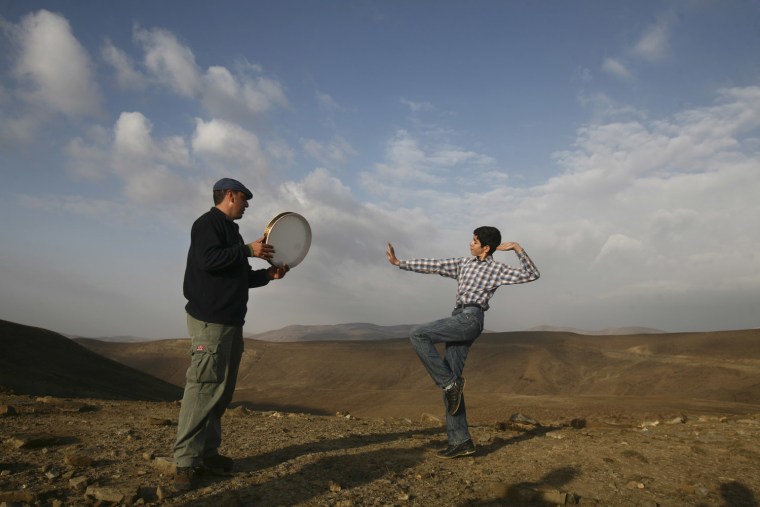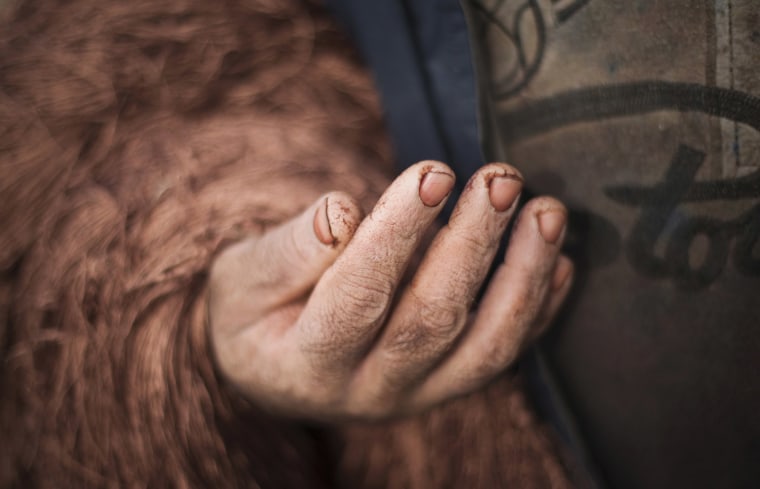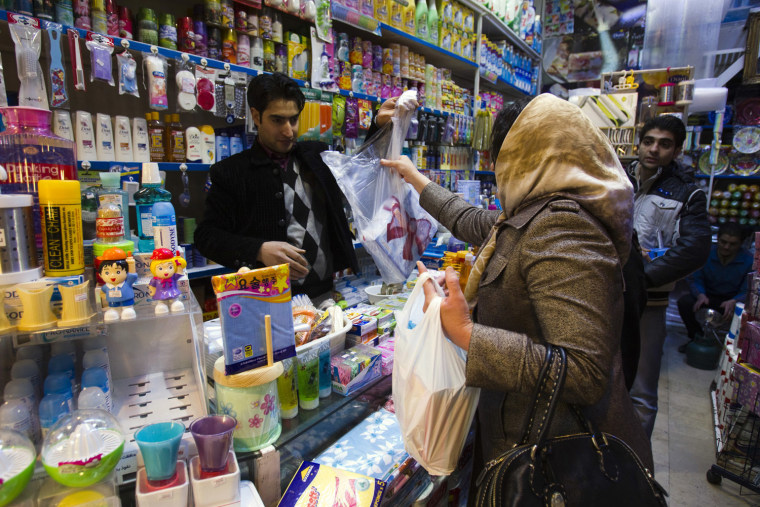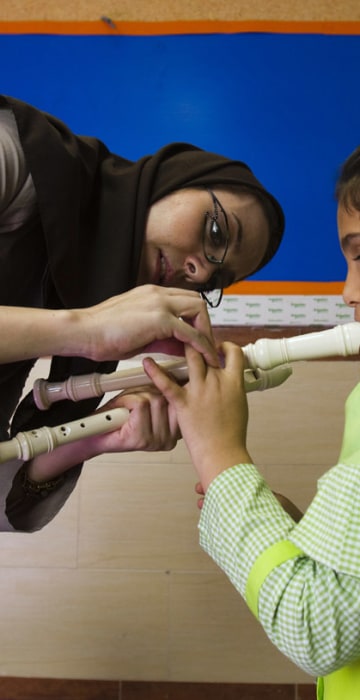
Photo
Slices of life in Iran

A student learns how to play a musical instrument at Pishtaz School in Tehran on October 15, 2011. Pishtaz, the first computerised pre-school for gifted students in Iran, claims to have pioneered teaching techniques through the means of IT. Parents can watch their children's daily activities from home via CCTV cameras installed throughout the public areas in the school, which includes the classrooms, playgrounds and hallways.
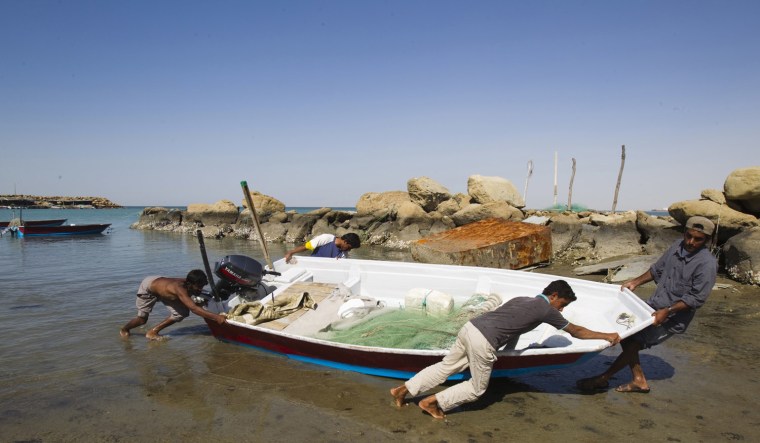
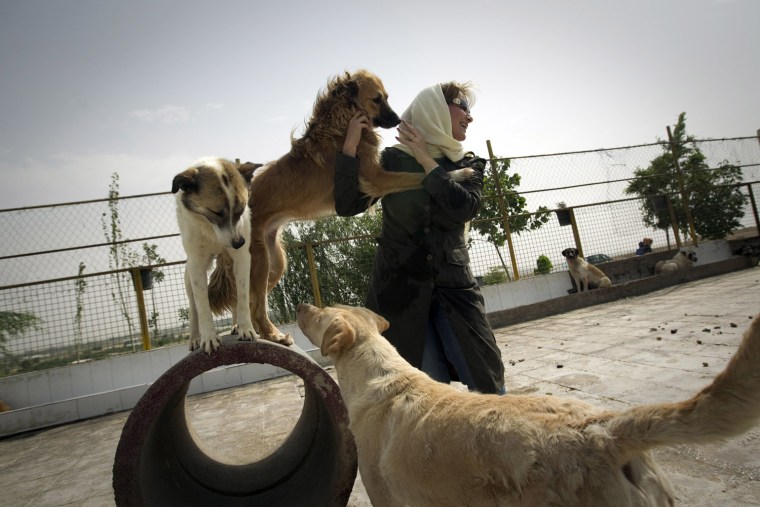
Dog lover Neda plays with the strays at the Vafa animal shelter in the town of Hashtgerd, about 45 miles west of the capital Tehran on June 30, 2011. The first animal shelter in Iran, the non-government charity relies on private donations and volunteers to provide shelter to injured and homeless dogs in Iran. Canine lovers in the Islamic Republic are faced with a motion put forth by lawmakers in the conservative-dominated to ban the public appearance of dogs due to their "uncleanness" and to combat "a blind imitation of vulgar Western culture." If the motion becomes law, first-time offenders will be fined five million rials (472 USD or 337 euros) and will be given a 10-day period to get rid of the dog or face the canine's confiscation to an unknown fate.
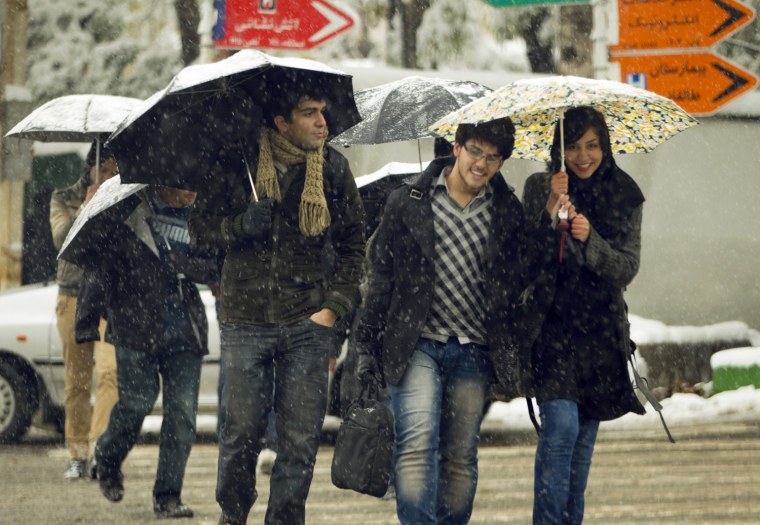
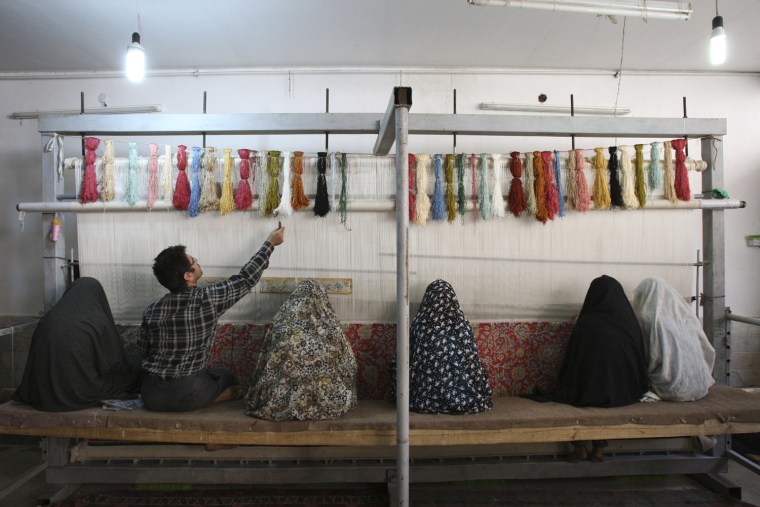
Iranian women and a man weave carpet in a workshop in Qom, 78 miles south of the capital Tehran. Deep in Tehran's carpet bazaar, the merchants and laborers occupy chambers that have changed little over the centuries. But Iran's carpet industry now faces some modern pressures. The country's more than 1 million weavers _ producing an average of $500 million in exports a year _ are fighting against competitors in major workshops in places such as Pakistan and China.
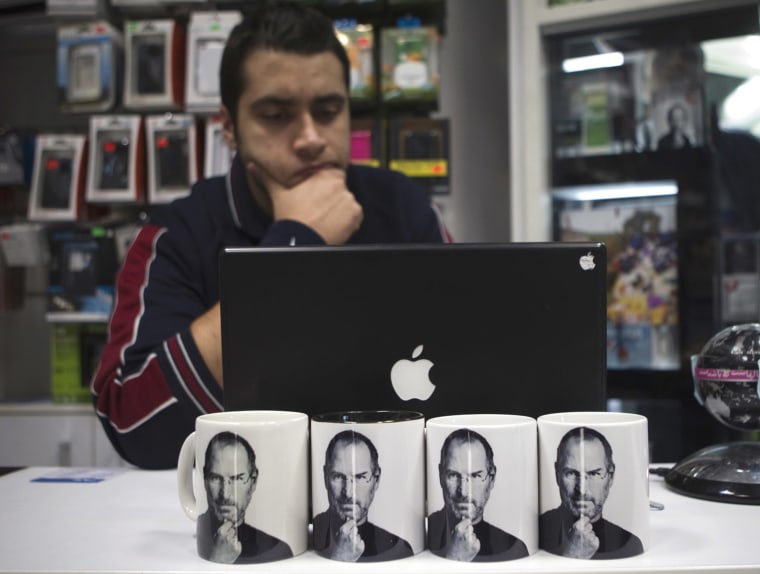
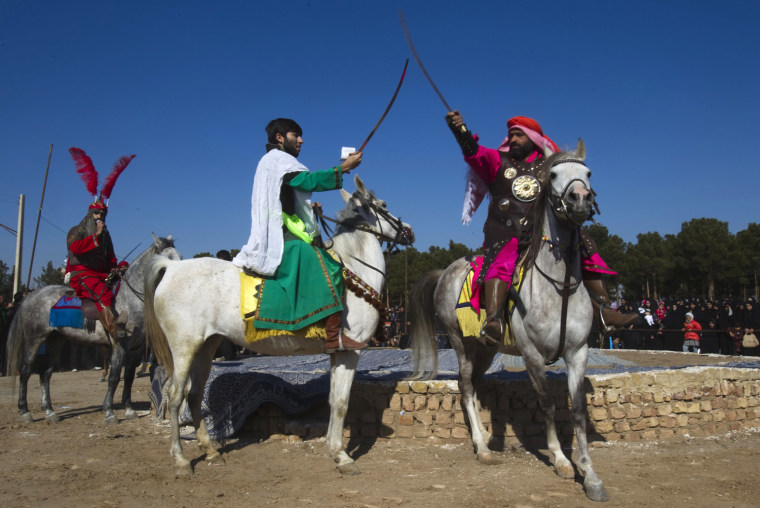
Actors take part in a re-enactment of the 7th century battle of Kerbala during the "Taziyeh" religious theatre performance on Tasoua, a day before Ashura, in Noushabad, Isfahan province on December 5, 2011. Ashura, the most important day in the Shi'ite Muslim calendar, commemorates the death of Imam Hussein, grandson of the Prophet Mohammad, in the 7th century battle of Kerbala.
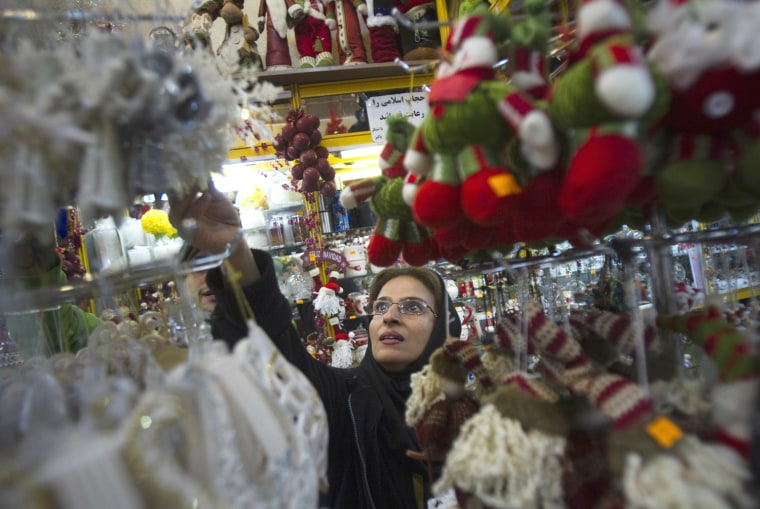
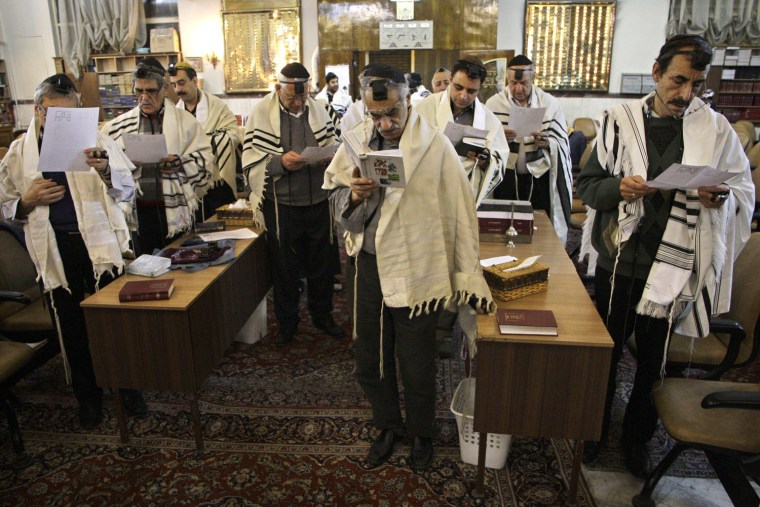
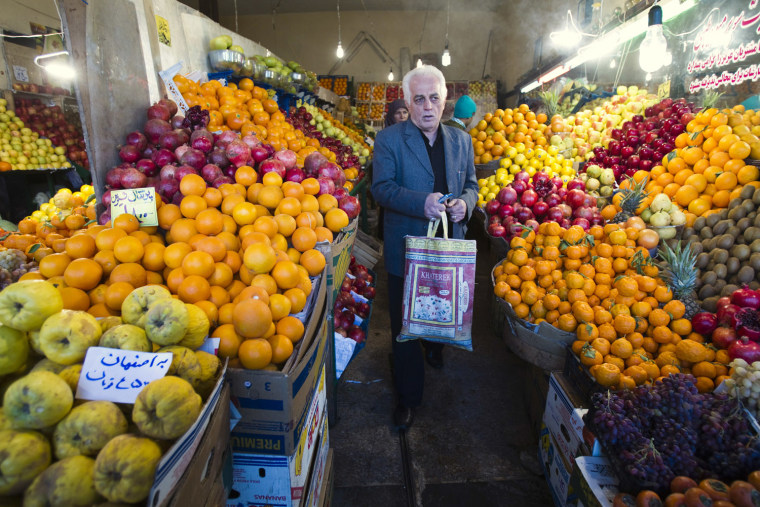
A man leaves after shopping at a fruit store in Tehran on January 6, 2012. International sanctions aimed at depriving Iran's nuclear programme of funds and technology are squeezing Tehran's vital oil exports and government finances. In September 2010 the government pushed through cuts in fuel subsidies despite public and parliamentary opposition. Rising utility prices have since forced factories to shut - an estimated 180 in Tehran alone. Prices of basic goods like bread, meat and rice are increasing daily. Meat is too expensive for many, costing $20 a kilo. Iranian opposition websites regularly issue reports of layoffs and strikes by workers who haven't been paid for months, including in government-owned factories.
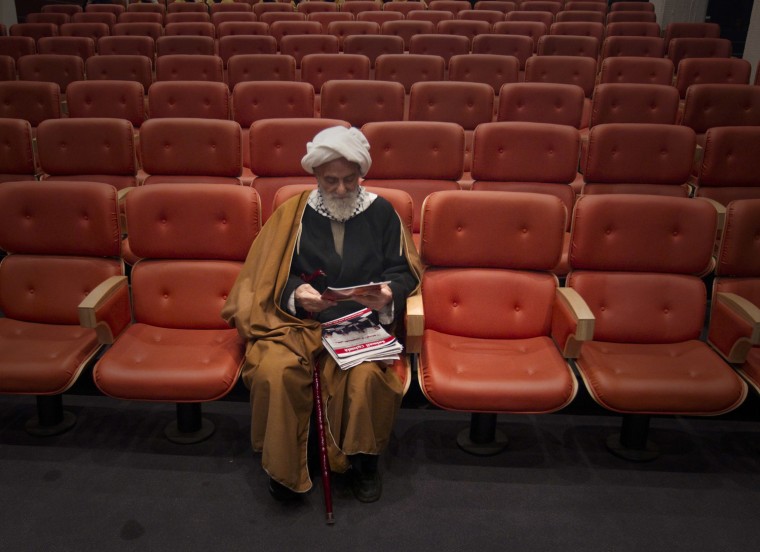
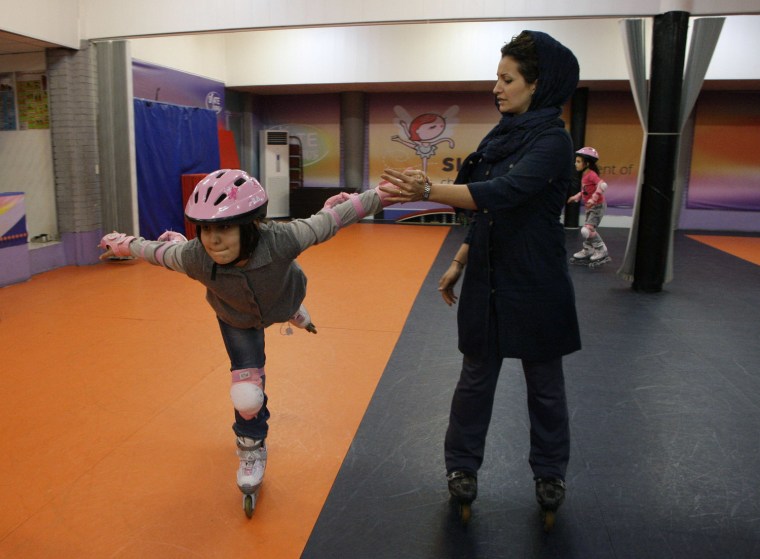
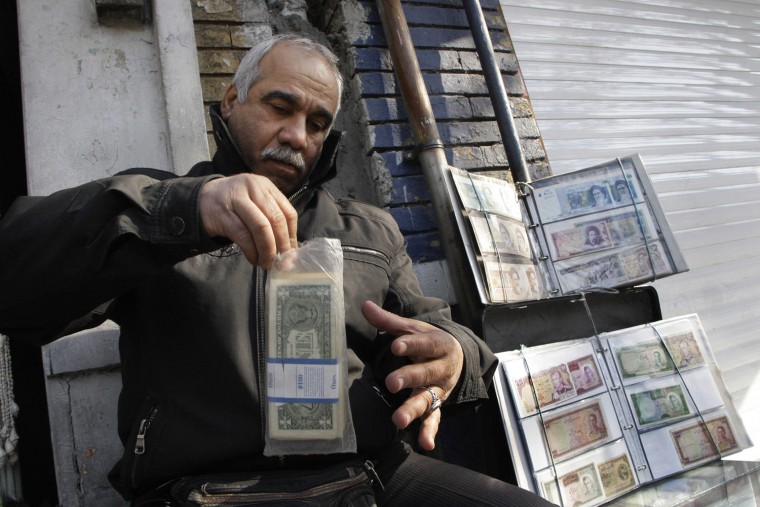
A street money exchanger, puts US dollars in a plastic bag, in Ferdowsi St. in downtown Tehran, Iran, Wednesday on Dec. 21, 2011. The rial hit a record low on Wednesday, with the US dollar selling for 16,150 rials in foreign currency exchange offices. The dollar sold for about 10,500 rials last December and in 1979 _ the year an Islamic revolution toppled the pro-Western Shah Mohammad Reza Pahlavi _ it was 70 rials against the dollar. Iran has restricted cash withdrawals and allows banks to sell only $2,000 per year to each person traveling outside the country.
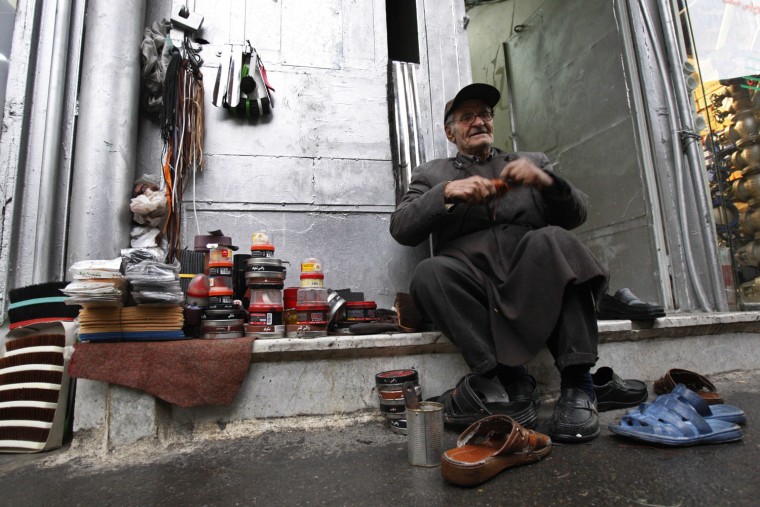
Shoe repairman, Aziz, 86, works in a street in downtown Tehran in November 2010. The most potent challenge to Iran's ruling system may not be international sanctions or the homegrown political opposition, but something as simple as a shopping list. Islamic leaders are starting to trim an estimated $100 billion a year in government subsidies for fuel and food staples that many low-income Iranians consider a birthright.
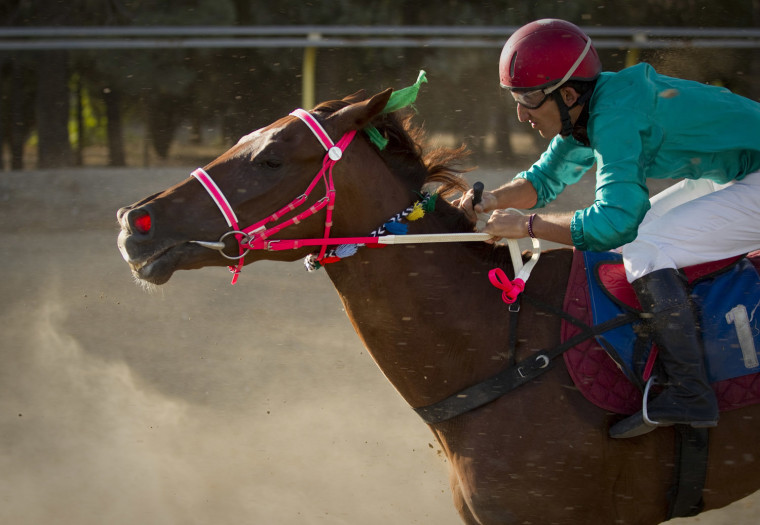
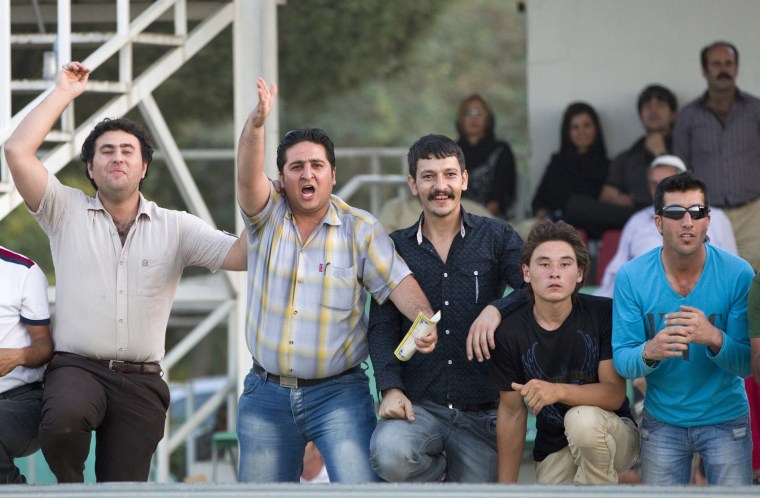
Spectators cheer as the horses run during the summer races at the Norouzabad Equestrian center on the outskirts of Tehran on September 16, 2011. Under Islamic sharia law, gambling is generally seen as illegal. But thanks to certain religious rulings, many race-goers are permitted to put money on the horses legally as long as they are "predicting" through official channels.
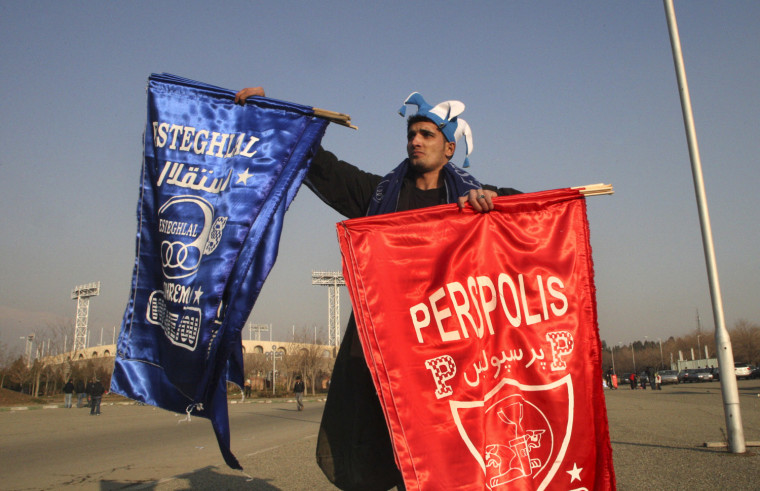
An unidentified Iranian vendor wait for customer to sell flags of two Iranian giant soccer teams Esteghlal, left, and Persepolis, right, prior to start of their 73rd derby match, during Iran's Jam-e-Hazfi, or Elimination Cup, at the Azadi (Freedom) stadium in Tehran, Iran, on Dec. 9, 2011. Iran's top two soccer teams fought in a quarter final match of the cup and Esteghlal won 3-0.
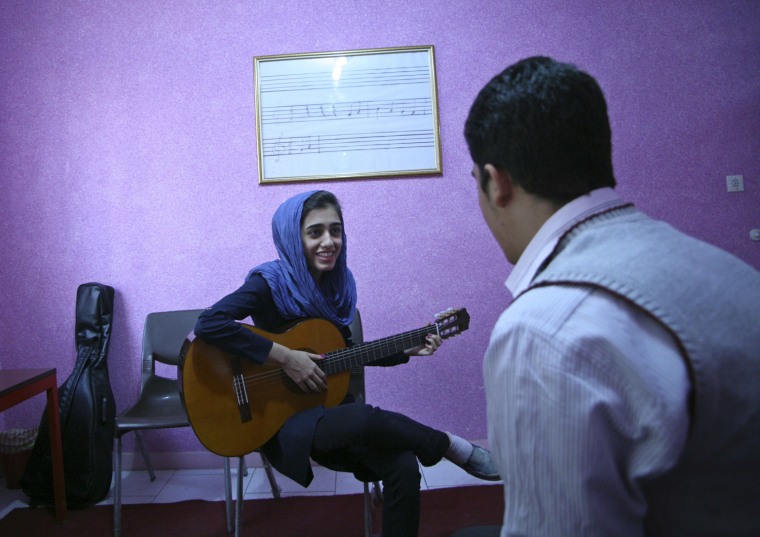
Ghazaleh Miramini, left, practices guitar with her music teacher Amir Salami at a music school in Tehran on Nov. 3, 2011. In the 1980s, Iran's music almost vanished. Music schools went into full recession, police or militias stopped cars to check what passengers were listening to and broke tapes playing pre-revolutionary singers, and clerical institutions even banned music as un-Islamic. But Iran's social life has dramatically changed a decade later, with a landslide victory of former President Mohammad Khatami with relaxing some of rigid restrictions on cultural and social activities, including bans on music bands, but Iran has tightened censorship of books, films, and music since President Mahmoud Ahmadinejad came to power.
